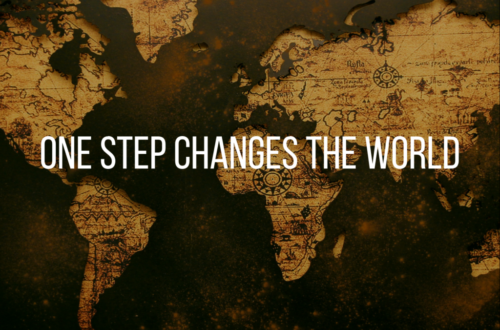
Whoa, There. No Consuming Fire Today!
Reading through Luke’s narrative the other day, I stopped at one verse and started to chuckle. Then, I was laughing. I’m not sure of the Bible’s funniest verse, but Luke 9:54 is on my Top 10 List.
Let’s set the stage. Earlier in the chapter, Jesus sends the 12 disciples out to preach the good news. Going through villages, they shared what they knew; things like “The kingdom of God is near”—and healed a lot of people along the way.
These men were now performing the very miracles they saw from Jesus. I’m sure they sensed they were on a roll.
Just after this, we see the 5,000 fed. Then a few days (and verses) later, Jesus takes Peter, James and John up on a mountain and they see Jesus transfigured before them, hearing the voice God say, “This is my son, my chosen one; listen to him!”
This is the trifecta. If I’m one of those disciples, I’ve begun healing people, seen thousands fed with a few fish and some bread; and now, I’m one of the few persons in the world who has heard the voice of God almighty. Good times, right?
Within a couple of weeks of these powerful moments, Jesus and the disciples turn toward Jerusalem, attempting to pass through a Samaritan city. As we know, the Jews didn’t think much of Samaritans and the Samaritans returned the favor.
Jesus sent messengers ahead to clear the way through the city, but the Samaritans would have none of it. Jesus and the disciples were turned away.
This is where I chuckle, because James and John come up with a great idea: “Lord, do you want us to command fire to come down from heaven and consume them?” Now that would certainly take care of the problem.
Luke says Jesus rebuked them, and some versions say Jesus went on to say, “You do not know what kind of spirit you are of; for the son of man did not come to destroy men’s lives, but to save them.”
At the risk of being irreverent here, if I could write the script for Jesus in an updated version of this moment I could see him saying, “Whoa there, chief! You can shake the dust off your feet; but we’re not doing the consuming fire thing today.”
The same guys—John and James—who less than two weeks earlier were touching people and bringing them back to health, then seeing the miraculous take place in front of their eyes—were ready to torch the Samaritans because of a delayed trip.
But in James’ and John’s defense, Jews didn’t talk to Samaritans. So, why not ask God to rain down a bit of fire and show who knows the real Boss?
It was easy then, for James and John to turn from healers to unabashed flame-throwers in a matter of days. I’m wondering if—when we label people—it’s so much easier to disregard their humanity.
I’m not a fire-rainer-downer kind of guy, but I can be a labeler.
Fact is, when I label people I tend to dismiss them. I’m quicker to overlook their needs as insignificant and I’m more likely to look at the problems of someone I’ve labeled and say to myself, “They created this mess; now they need to learn from it.”
So if I’m not careful, I will do nothing to help. Like I said, labeling is a challenge for me to overcome.
When I face these situations, I must laugh; reminding myself that I’m in the same boat as James and John. Because ignoring someone who is struggling—because of my self-created labels—is not that much removed from asking the fires of judgment to rain down on them.
And Jesus says to me, just like he did to James and John, “The son of man did not come to destroy lives, but to save them.”
Ahhhh. I get it now. Quietly rationalizing my inaction solves nothing; love dictates that whenever possible, I invest in another person—regardless of my self-concocted labels.
The next time I start to label someone, I’ll think of James and John. At one point in their lives, they were just two guys who saw a problem and decided the best solution was to destroy those who got in their way.
But looking back on their lives, it’s an understatement to say, “They changed.” Today, James and John—through their letters and narratives—are two men who taught us how faith and love work together to change the world.
Can I change the world by rethinking my all-too-human tendency to label others? I don’t know, but it’s probably not a bad place to start.



